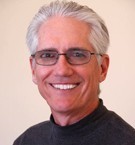Students often ask, What does a Christian leader need in order to experience an effective life of ministry in the local church? A key part of the answer has to do with the kinds of people we gather around ourselves.
As I look back over some thirty-five years of local church ministry, four kinds of relationships (besides God and my natural family) have proven indispensable to the health and vitality of my own pilgrimage as a pastor:
1. Mentors — Young pastors, especially, need seasoned veterans to guide them through their first years of ministry. God was very generous to me, in this regard. A youth pastor mentored me in high school ministry. Talbot’s own Dr. John Hutchison was my senior pastor during my first full-time position as Pastor of Single Adults. I went with John on hospital visitation, listened to him preach, and watched him lead the church through some difficult times. John even guided me through my first funeral. (I still use the outline from John 11 that John gave me—with his blessing, of course!)
Search the Good Book Blog and you’ll find some great insights about mentoring from Dr. Ben Shin. I strongly encourage any seminary graduate interviewing for a church position to ask what kind of mentoring he will receive if he is hired by the church.
2. Peers — Like certain other professors here at Talbot (Saucy, Russell, Thoennes, Talley, etc.), I do not believe that the local church should be led by a senior/lead pastor. You may or may not agree. Formal considerations about church government aside, we would all do well to minister in community with others who know us well and who have permission to speak into our lives. This is just relational common sense. My fellow-pastors at Oceanside Christian Fellowship happen to be some of my best friends. This did not come about by accident. We have been meeting and praying together weekly for over a decade.
My temperament is somewhat volatile by nature, so that I experience more than my share of ups-and-downs (emotionally and energy-wise) in my life and ministry. Periods of great productivity tend to cash out in periods of weariness and mild discouragement. The stabilizing, leveling effect of the relationships I enjoy with my eight fellow-pastors at OCF is only one of many benefits that come from sharing the ministry with peers.
3. Disciples — According to the Bible every Christian is a disciple of Jesus (had to throw a bone to Dr. Mike Wilkins there). I am using “disciple” here in another sense, to refer to special individuals whom we pour ourselves into as Christian leaders. We will not reproduce ourselves by preaching from afar or by administrating church programs. Stop and reflect on your own pilgrimage. You likely owe much of who you are to some special people God placed in your life along the way. You need to be that special person to someone else.
There will always be persons in your church with whom you will have a special connection. Some of them will be spiritual flakes. Others will exhibit great potential to impact the world for Christ. The most effective ministry you will ever have just might be with disciples from this latter group. I have never had more than a couple such disciples in my life at a given time. But I’ve almost always had at least one. These former disciples today include (1) a philosophy professor at a state university, (2) a New Testament professor at Talbot School of Theology, (3) a missionary church planter and New Testament professor in France, (4) a Wycliffe Bible translator, (5) a missionary educator in Indonesia.
When Jesus appeared on the scene, John the Baptizer’s disciples began to feel threatened by all the attention Jesus was receiving. John’s response is revealing: “He must increase, but I must decrease” (John 3:30). We would do well to adopt this approach, whenever God brings someone into our ministry whose character and gifts show great promise for Kingdom work.
4. The Unchurched — The fellow who planted Oceanside Christian Fellowship had a gift-mix that was ideal for reaching the lost. Duke belonged to the Manhattan Beach Rotary Club. He delighted in hanging out with non-Christians in ways that came natural to him. I became a Christian as a young adult, so I, too, am quite comfortable around unchurched people. But my gift-mix is oriented toward equipping the saints, not personal evangelism. Unlike Duke, I have had to be very intentional in my efforts to cultivate friendships with persons outside the “Christian bubble” of Biola University and Oceanside Christian Fellowship.
For me, this has required several hours each week hanging out at a local tackle shop to connect with the saltwater fishing community. Over the years I’ve met a great bunch of fellow-fishermen. I’ve officiated at their weddings, their funerals, and even a baptism or two. More recently I’m spending less time at the tackle shop and more time playing my new keyboard with a circle of unchurched musicians around town. We’ll see where this goes. Musicians are a whole different crowd than fishermen, and it’s a bit early to tell. But God always seems to work in some amazing ways when we put ourselves out there like this.
Four kinds of relationships: (1) Mentors, (2) Peers, (3) Disciples, (4) The Unchurched. Keep a balance here and you most likely thrive in the ministry that God has for you.
 Biola University
Biola University


.jpg)
.jpg)